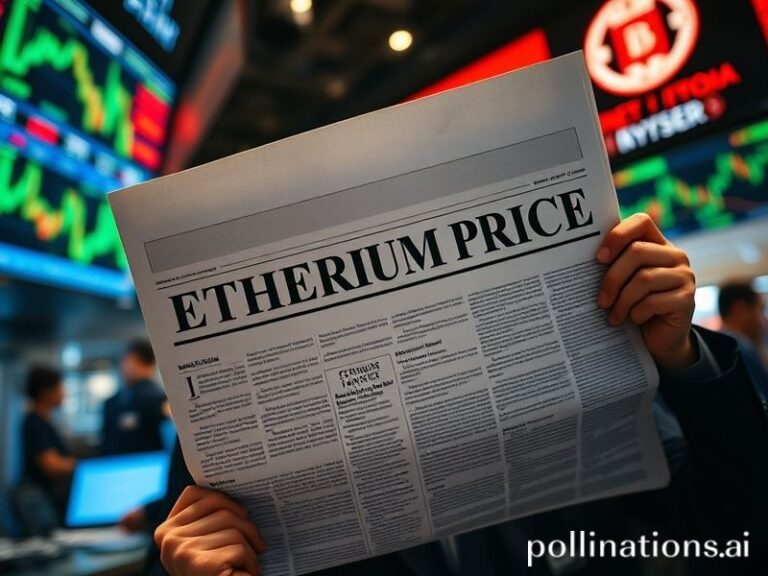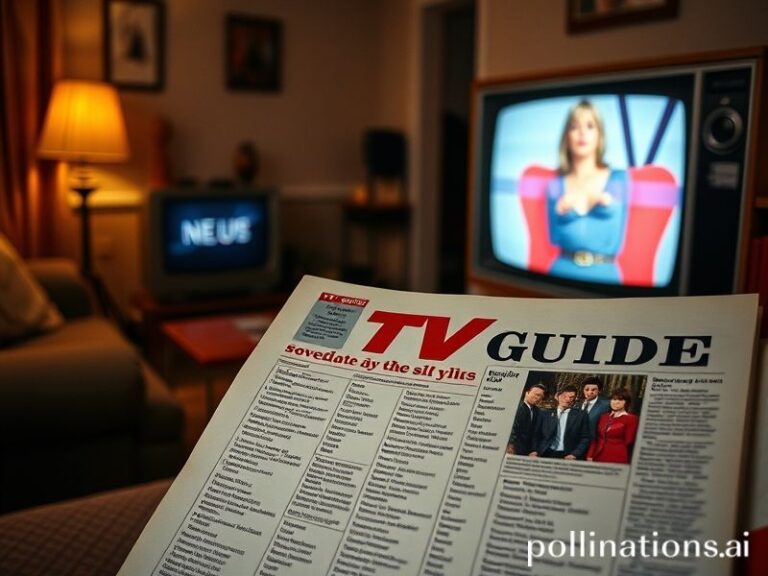Glenn Powell: The Last Acceptable American Export in a World on Fire
AUSTIN, TEXAS—On the day Glenn Powell signed a three-picture deal with Paramount, the Shanghai Composite dipped 1.3 %, a container ship got wedged sideways in the Suez Canal (again), and a Russian oligarch’s megayacht was seized in Monaco for unpaid parking fees. None of these events were officially connected to Powell’s ascendancy, yet to the trained eye of the global cynic, they form a perfect diptych: one man’s inexorable rise in the American star-making machine mirrored by the rest of the planet’s slow-motion pratfall.
Who, exactly, is Glenn Powell? If you’re outside the United States you may know him as “that guy who looks like a genetically engineered Ken doll” or, more charitably, as the air-guitar enthusiast who stole scenes in Top Gun: Maverick—now the 12th-highest-grossing film ever, which means Powell’s face has been projected on more square meters of multiplex wall than the surface area of Liechtenstein. To the Hollywood trades he is the latest iteration of the “bankable everyman,” a phrase here defined as “handsome enough to sell cologne, bland enough not to scare the CCP censors.” To foreign distributors he is simply Unit 17B in the spreadsheet column labeled “Mid-Budget Star, North American, 18-49 Demo.”
The international implications of Powell’s stardom are simultaneously trivial and profound. Trivial because, at the end of the day, he’s just a 35-year-old Texan who learned to smirk on cue; profound because that smirk is now a geopolitical commodity. When Devotion opened in South Korea, the film’s distributor cut a promo in which Powell saluted the Korean War veterans—an act of cinematic diplomacy so shameless it could have been scripted by the State Department. Meanwhile, Chinese streaming platforms quietly excised ten seconds of Powell’s American-flag beach volleyball scene for “aesthetic reasons,” a euphemism Beijing deploys whenever it needs to surgically remove patriotism like a malignant tumor.
Consider the supply chain behind Powell’s fame: Bulgarian camera crews, Canadian VFX sweatshops, Australian color graders, and a Swiss insurance underwriter who specializes in “facial disfigurement risk” for A-list cheekbones. The modern movie star is less a person than a trans-national LLC with hair. Powell’s personal brand—equal parts Tom Cruise 2.0 and Matthew McConaughey Lite—has to be translated into 30 languages and zero political ideologies. That balancing act is why the upcoming Powell vehicle, a romantic caper set in the Dolomites, has been pre-cleared by both Netflix’s algorithm and the Vatican’s film office. (Yes, the Holy See issues ratings now; apparently even God wants a piece of the Chinese market.)
Then there is the soft-power angle. The U.S. still exports corn, fighter jets, and Taylor Swift, but its most reliable export might be heteronormative charm wrapped in bomber-jacket nostalgia. Powell’s appeal lies in his willingness to embody the last universally acceptable American: polite to waiters, kind to dogs, allergic to nuance. In an age when Washington can’t get half the planet to answer its phone calls, Powell’s jawline does the dialing. French intellectuals will roll their eyes, but their teenagers will queue for selfies anyway, proving once again that irony is no match for orthodontics.
Of course, every shooting star risks burning up on re-entry. Studio accountants in Burbank already whisper that Powell’s quote—$5 million against 7 % first-dollar gross—may be “unsustainable in a post-SAG strike world.” Translation: the bots are coming, and they’re cheaper. Meanwhile, climate change threatens the very ski slopes where Powell’s next rom-com is set; insurance now prices “nonexistent snow” as a category of loss. Should the planet become uninhabitable, future archeologists will unearth a pristine Blu-ray of Top Gun: Maverick and conclude that 21st-century civilization’s final act was to watch a handsome man high-five another handsome man at Mach 2.
And yet, for now, Glenn Powell remains a triumph of engineered charisma, a walking trade surplus in white teeth. The world may be going to hell, but at least it’s doing so while whistling the theme from a Tom Cruise sequel. If that isn’t the definition of American soft power, nothing is.







